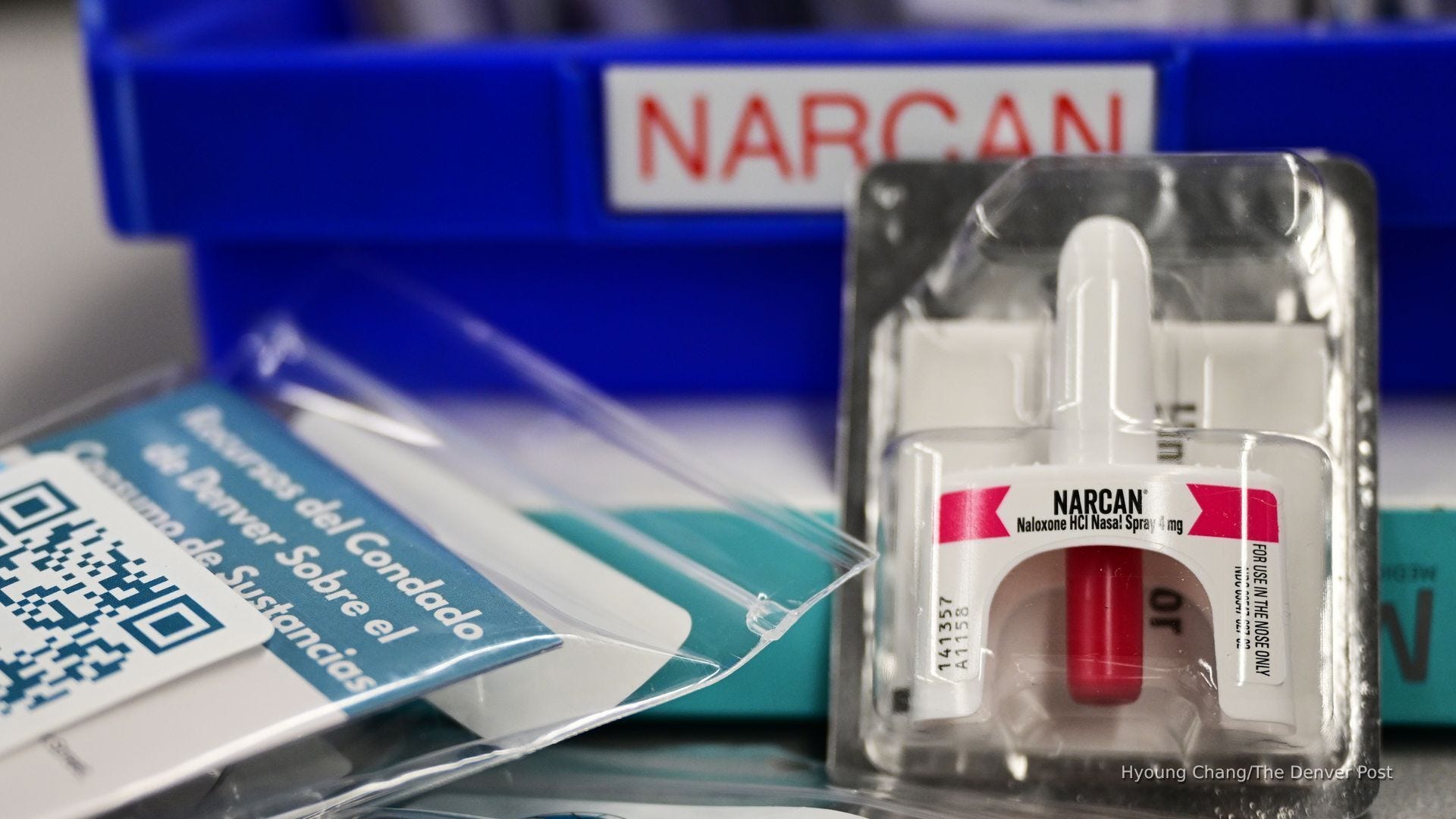Drug overdose deaths plummet to pre-pandemic levels during fentanyl crisis
Just over 80,000 Americans died from a drug overdose in 2024, a 27% decline from a year earlier.

The number of Americans who died from overdoses of drugs like fentanyl and meth dropped nearly 30% last year, falling to a level not seen since before the COVID-19 pandemic, according to the CDC.
Experts attribute the decrease to a combination of factors, including the wider availability of the opioid antidote naloxone, along with $50 billion in funding for drug-treatment and youth prevention efforts from the national opioid settlements. Also playing a role: continued aggressive interdiction of drugs being smuggled through both Canada and Mexico.
Provisional tallies from the CDC's National Center for Health Statistics show there were slightly more than 80,000 overdose deaths last year, down 27% from 2023. Among the states with the most significant reduction in overdose deaths were Louisiana, Michigan, New Hampshire, Ohio, Virginia, West Virginia, and Wisconsin, according to the CDC. South Dakota and Nevada were the only two states with an increase in deaths.
"This is great news," said Dr. Allison Lin, a psychiatrist specializing in addiction research and treatment at the University of Michigan. "It really has taken a huge effort. Now we have to understand, what are the efforts we need to keep doing?"
Public health experts say drug overdose deaths rose sharply during the pandemic as hospitals and communities curtailed access to drug-treatment programs at a time when social isolation and economic uncertainty raised the risk that people would turn to drugs. According to the CDC, the deadliest drugs were those containing the synthetic opioid fentanyl, which was responsible for about 48,500 deaths last year, the CDC reported.
The national opioid settlements punished pharmaceutical manufacturers and some pharmacies for their role in fueling the opioid epidemic, which began with prescription painkillers and ultimately morphed into fentanyl. More than 1 million Americans have died of opioid-related overdoses since 1999, according to Congress.
According to federal experts, fentanyl can be made cheaply and in large quantities in labs, and is far more potent than natural opiates like heroin or morphine. But because users typically develop a tolerance for it, as they do with morphine or heroin, it's even easier to overdose because a fatal dose of pure fentanyl can weigh as little as a few grains of salt, according to the DEA. Fentanyl is also cut into some streeet drugs without users realizing it.
Former President Joe Biden launched an aggressive effort to reduce drug overdose deaths, including providing frontline workers and community members with access to naloxone, along with allowing federal grant recipients to buy and distribute fentanyl test strips, so users could test their drugs. The Biden administration also distributed billions of dollars in public health grants to expand access to mental health and substance use treatment.
President Donald Trump has highlighted fentanyl overdoses as a public health crisis and national emergency, and repeatedly criticized both Canada and Mexico for not doing enough to stop cross-border drug sales to American consumers. But he has also proposed cutting a $56 million grant that helps train police officers and other frontline workers to administer nalaxone.
Prof. Robert Valuck, who runs the Center for Prescription Drug Abuse Prevention at the University of Colorado School of Pharmacy, said Trump's get-tough approach on choking off supply may help reduce deaths, as long as it continues to be accompanied by drug-treatment opportunities.
Valuck said the pandemic supercharged drug use, which lead to a significant increase in overdose deaths; with the pandemic over, the levels are essentially where they would have been without it, he said.
He said there's still reason for optimism with the dropping level of deaths, countered by the increased risk from fentanyl, which is increasingly found in street drugs from meth to cocaine to heroin, because it's cheaper and easier to produce using precursor compounds available from Chinese chemical manufacturers.
Previously, he said, epidemiologists would have expected to see about one death for every 5.5 overdoses. Now, he said, it's closer to one death for every 2.5 overdoses because fentanyl is both so common and so deadly.
"The (drug) market has been around for thousands of years. This is not a new problem. The economics of this is not new. The potency of the compounds is literally the only thing that's changed," he said. "It was never a good idea to buy heroin on the street. But now it's a particularly bad idea."